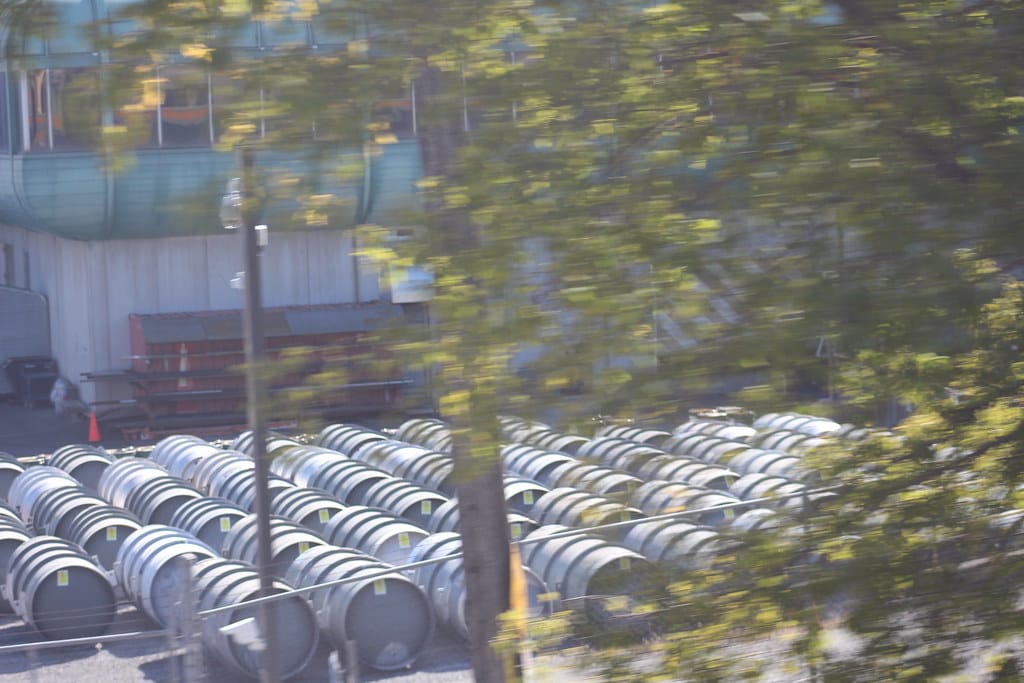France's Buried Toxic Time-Bomb: How Nuclear Waste Threatens Europe's Water Supply
A shocking investigation has revealed that millions of Europeans could face contaminated drinking water due to improperly buried nuclear waste across France—a toxic legacy that authorities have kept largely hidden from the public for decades. With contamination already seeping into groundwater systems, experts warn this environmental disaster could unfold over the coming years, affecting water supplies from Paris to the Mediterranean.
The Scale of Contamination
Recent studies conducted by environmental scientists and investigative journalists have uncovered approximately 500,000 cubic meters of radioactive waste buried across France in what authorities euphemistically termed "temporary storage sites" during the 1960s and 1970s. These sites, many unmarked and forgotten, contain a deadly cocktail of radioactive materials including cesium-137, strontium-90, and plutonium residues.
The waste originates primarily from France's aggressive nuclear weapons program and early civilian nuclear facilities, when environmental regulations were virtually non-existent. Unlike modern nuclear waste storage, which involves sophisticated containment systems, much of this material was simply buried in metal drums or concrete containers that are now deteriorating after 50-60 years underground.
Water Systems Under Threat
Groundwater Contamination Spreading
Hydrogeological surveys indicate that radioactive particles have already breached containment at over 60 identified sites, with contamination plumes spreading through underground aquifer systems. The Seine River basin, which supplies water to 12 million Parisians, shows measurable levels of radioactive contamination at multiple monitoring points.
"We're seeing tritium levels that are concerning, and this is just the beginning," warns Dr. Marie Dubois, a nuclear safety expert at the French Institute for Radiological Protection. "These underground plumes move slowly, but they're persistent and will continue spreading for decades."
Cross-Border Impact
The contamination doesn't respect national boundaries. Underground water systems flow across borders into Belgium, Switzerland, and Germany, potentially affecting an estimated 50 million Europeans who rely on these interconnected water sources. Swiss authorities have already detected elevated radiation levels in wells near the French border.
Government Response and Cover-Up Allegations
Decades of Silence
French nuclear authorities, including the National Agency for Radioactive Waste Management (ANDRA), have been aware of potential contamination for over two decades but failed to adequately inform the public. Internal documents obtained through freedom of information requests reveal that officials deliberately downplayed risks to avoid public panic and costly cleanup operations.
The estimated cost of properly remediating these sites ranges from €15-30 billion—a figure that successive French governments have been reluctant to confront.
Recent Acknowledgments
Under mounting pressure from environmental groups and the European Union, French President Emmanuel Macron announced in March 2024 the creation of a €5 billion emergency fund for nuclear waste remediation. However, critics argue this represents only a fraction of what's needed for comprehensive cleanup.
Health Implications
Long-term Radiation Exposure
Medical experts warn that even low-level radiation exposure through drinking water can increase cancer risks, particularly for children and pregnant women. The World Health Organization considers any increase in radiation exposure beyond natural background levels to be potentially harmful.
Areas with confirmed groundwater contamination have reported 20-30% higher rates of thyroid cancer and leukemia compared to national averages, though establishing direct causation remains challenging.
Environmental Justice Concerns
Many contaminated sites are located in rural, economically disadvantaged areas where residents have limited access to alternative water sources. Environmental justice advocates argue that these communities have become sacrifice zones for France's nuclear ambitions.
The Path Forward
Immediate Actions Needed
Environmental experts recommend several urgent measures:
- Comprehensive mapping and monitoring of all burial sites
- Immediate provision of alternative water supplies to affected communities
- Accelerated development of contamination containment technologies
- Full transparency about contamination levels and health risks
European Response
The European Union has initiated its own investigation and is considering sanctions against France for potential violations of environmental protection directives. The European Environment Agency calls this "one of the most serious transboundary environmental threats in decades."
Conclusion: A Reckoning Decades in the Making
France's buried nuclear legacy represents a cautionary tale about the long-term consequences of prioritizing short-term convenience over environmental protection. As contamination spreads through Europe's interconnected water systems, this crisis demands immediate international cooperation and unprecedented remediation efforts.
The situation underscores a critical truth: environmental disasters don't respect borders or political timelines. What was buried decades ago in French soil is becoming today's European crisis—and tomorrow's public health emergency. The question isn't whether this toxic time-bomb will explode, but how much damage it will cause before decisive action is taken.
This developing story affects millions of Europeans. Stay informed about water safety updates in your region and contact elected representatives to demand transparency and action on transboundary nuclear contamination.
